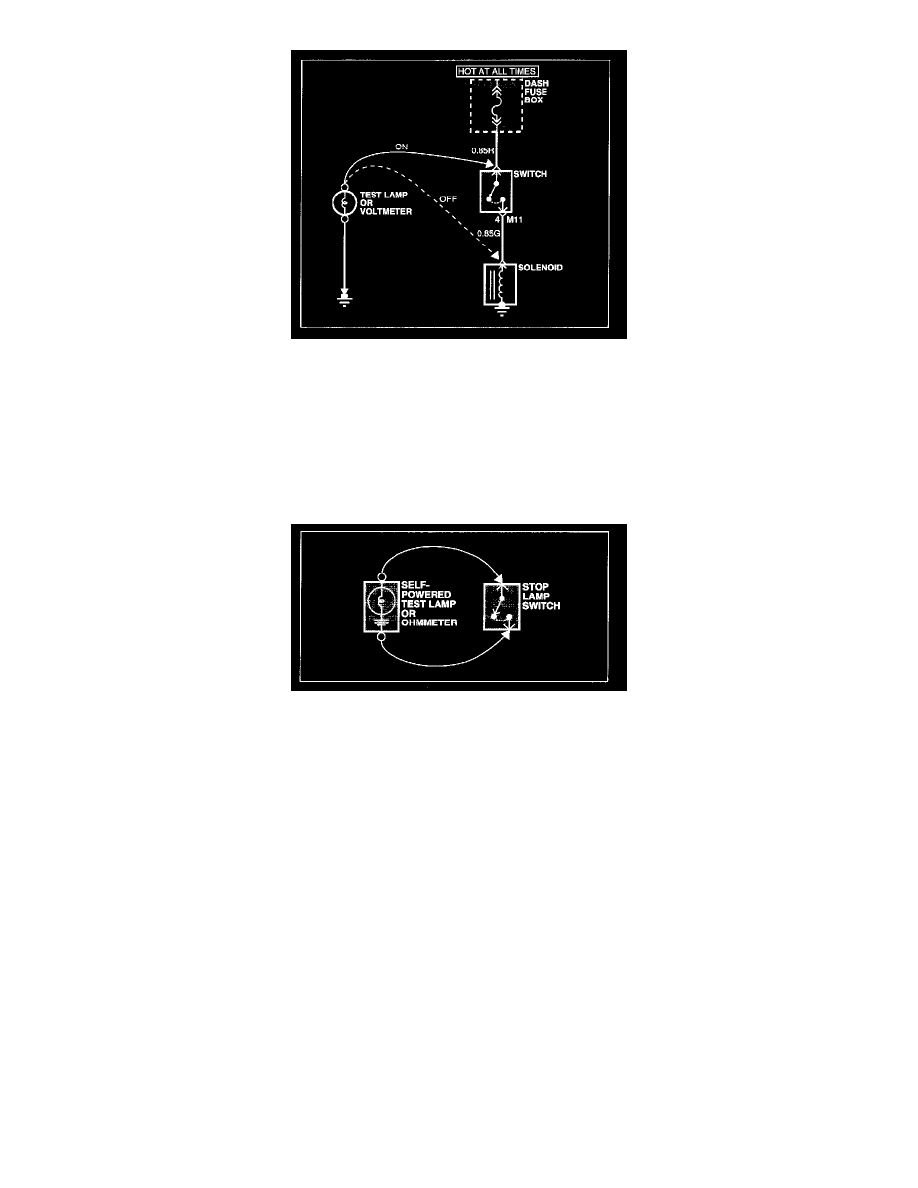Santa Fe FWD V6-2.7L (2007)

1. TESTING FOR VOLTAGE
This test measures voltage in a circuit. When testing for voltage at a connector, you do not have to separate the two halves of the connector.
Instead, probe the connector from the back (backprobe). Always check both sides of the connector because dirt and corrosion between its contact
surfaces can cause electrical problems.
A. Connect one lead of a test lamp or voltmeter to a ground. if you are using a voltmeter, be sure it is the voltmeter's negative test lead you have
connected to ground.
B. Connect the other lead of the test lamp or voltmeter to a selected test point (connector or terminal).
C. If the test lamp glows, there is voltage present. If you are using a voltmeter, note the voltage reading. A loss of more than 1 volt from
specification indicates a problem.
2. TESTING FOR CONTINUITY
A. Disconnect the battery negative terminal.
B. Connect one lead of a self-powered test lamp or ohmmeter to one end of the part of the circuit you wish to test. If you are using an ohmmeter,
hold the leads together and adjust the ohmmeter to read zero ohms.
C. Connect the other lead to the other end.
D. If the self-power test lamp glows, there is continuity. If you are using an ohmmeter, low or zero resistance means good continuity.
